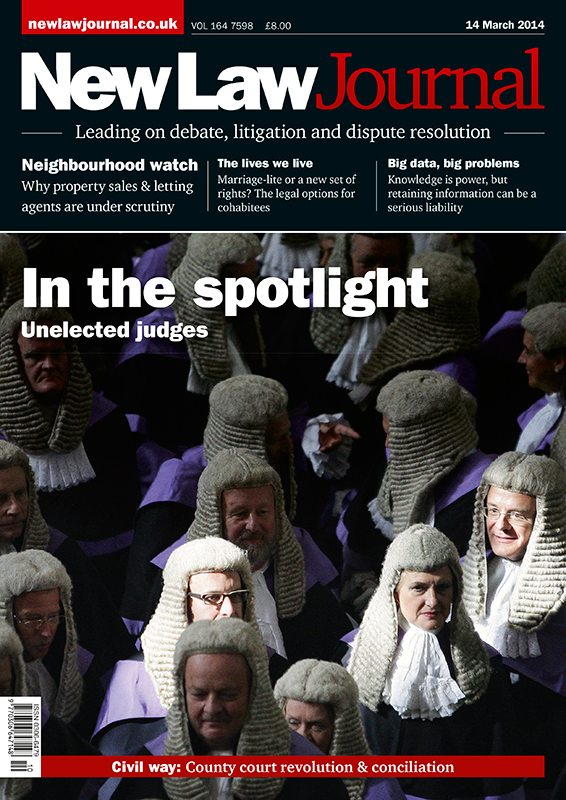
PI lawyer says Montréal Convention on air travel is outdated
Marriage-lite or a new set of rights? Claire Clarke examines the legal options open for cohabitants
Anastasia Karseras illustrates the recent crackdown on fraudulent activity
Are property sales and letting agents under scrutiny? Suzanne Rab & Andrew Francis say you can put your house on it
When will EU businesses be regarded as having “directed” their business activities to consumers in another member state, ask John Doherty & Charlotte Eccles
County court revolution & conciliate—or else
National Grid Electricity Transmission Plc v Arnold White Estates Ltd [2014] EWCA Civ 216, [2014] All ER (D) 16 (Mar)
Magmatic Ltd v PMS International Ltd [2014] EWCA Civ 181, [2014] All ER (D) 12 (Mar)
Samara v MBI & Partners UK Ltd and others [2014] EWHC 563 (QB), [2014] All ER (D) 48 (Mar)
Financial Conduct Authority v Capital Alternatives Ltd and others [2014] All ER (D) 03 (Mar)
MOVERS & SHAKERS

Jackson Lees Group—Jannina Barker, Laura Beattie & Catherine McCrindle
Firm promotes senior associate and team leader as wills, trusts and probate team expands

Asserson—Michael Francos-Downs
Manchester real estate finance practice welcomes legal director

McCarthy Denning—Harvey Knight & Martin Sandler
Financial services and regulatory offering boosted by partner hires







